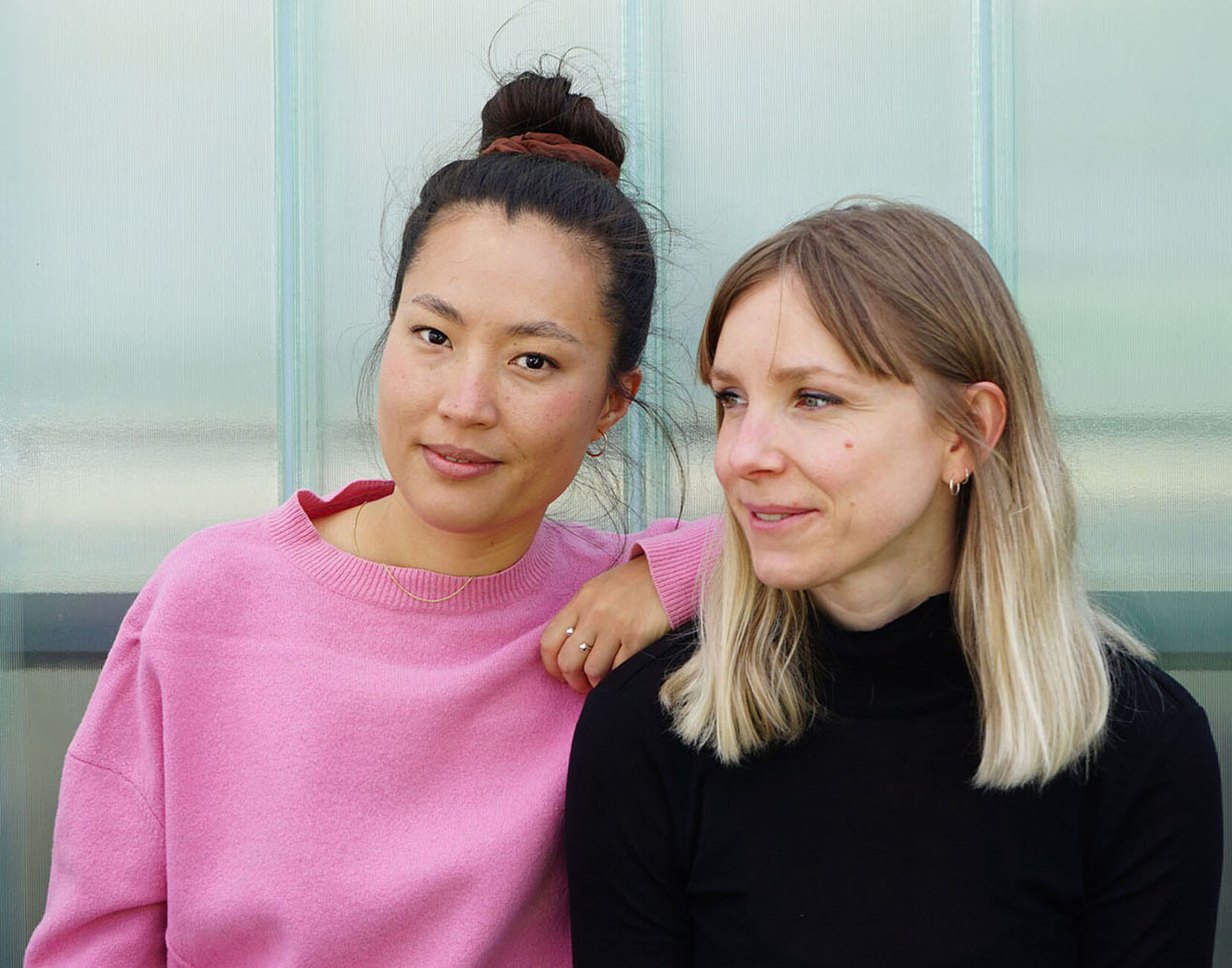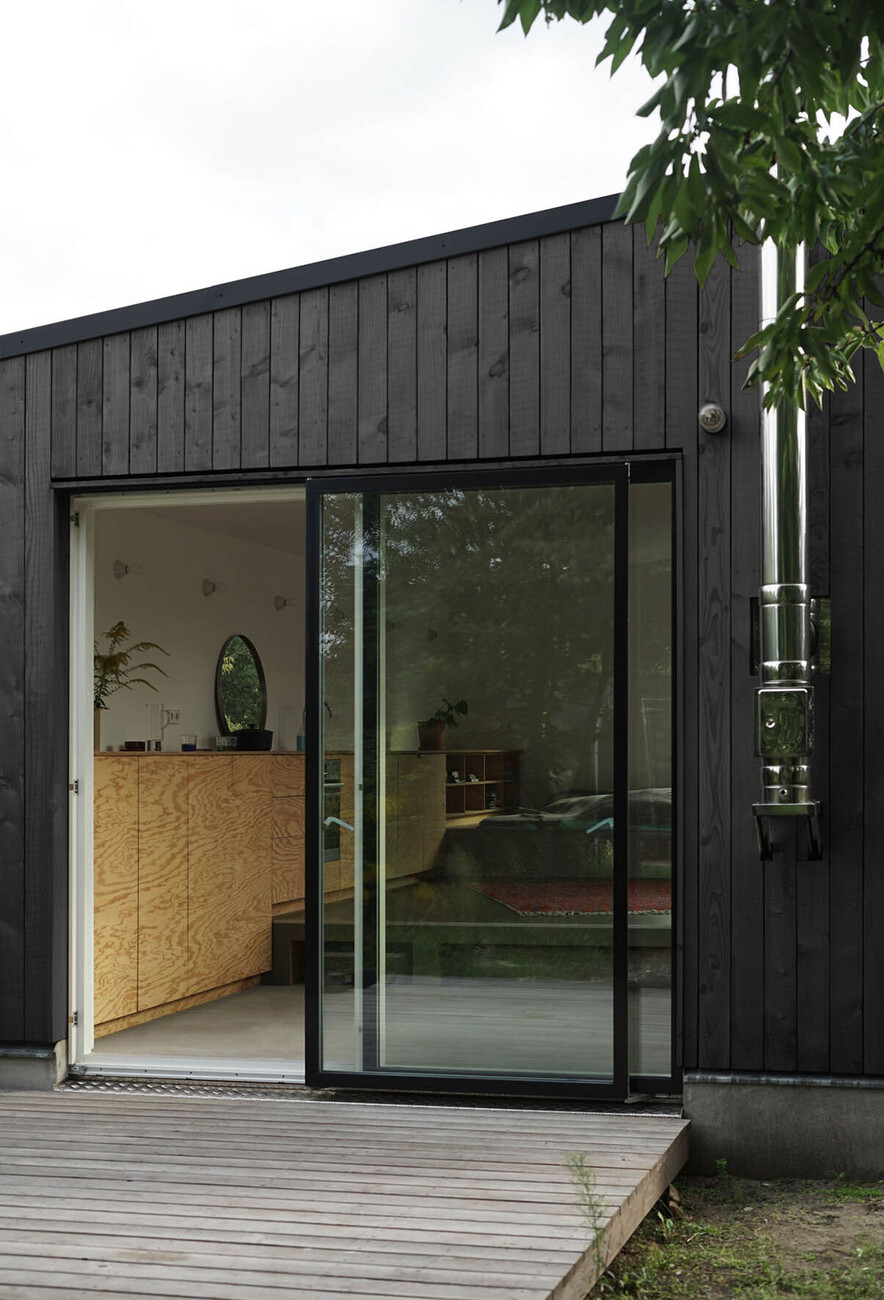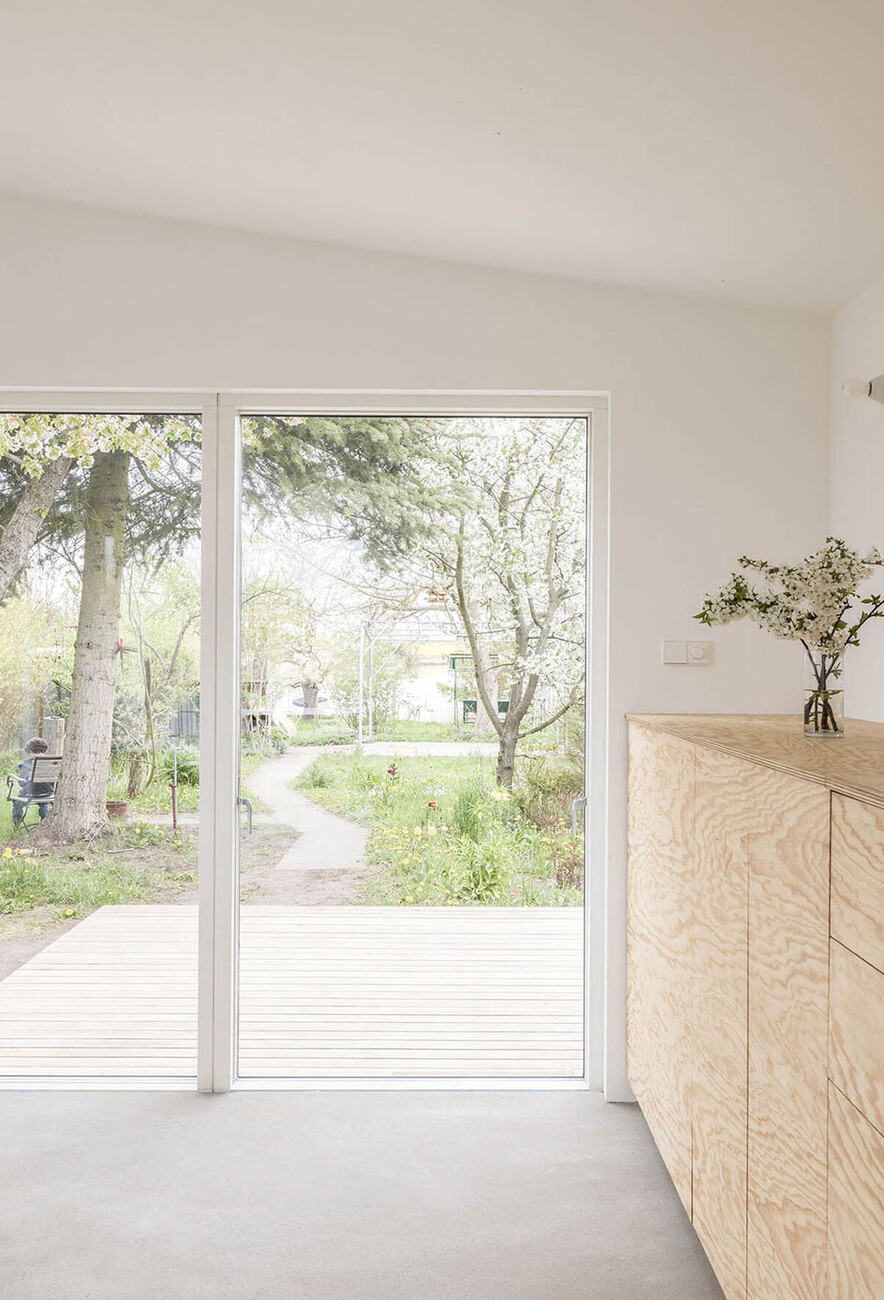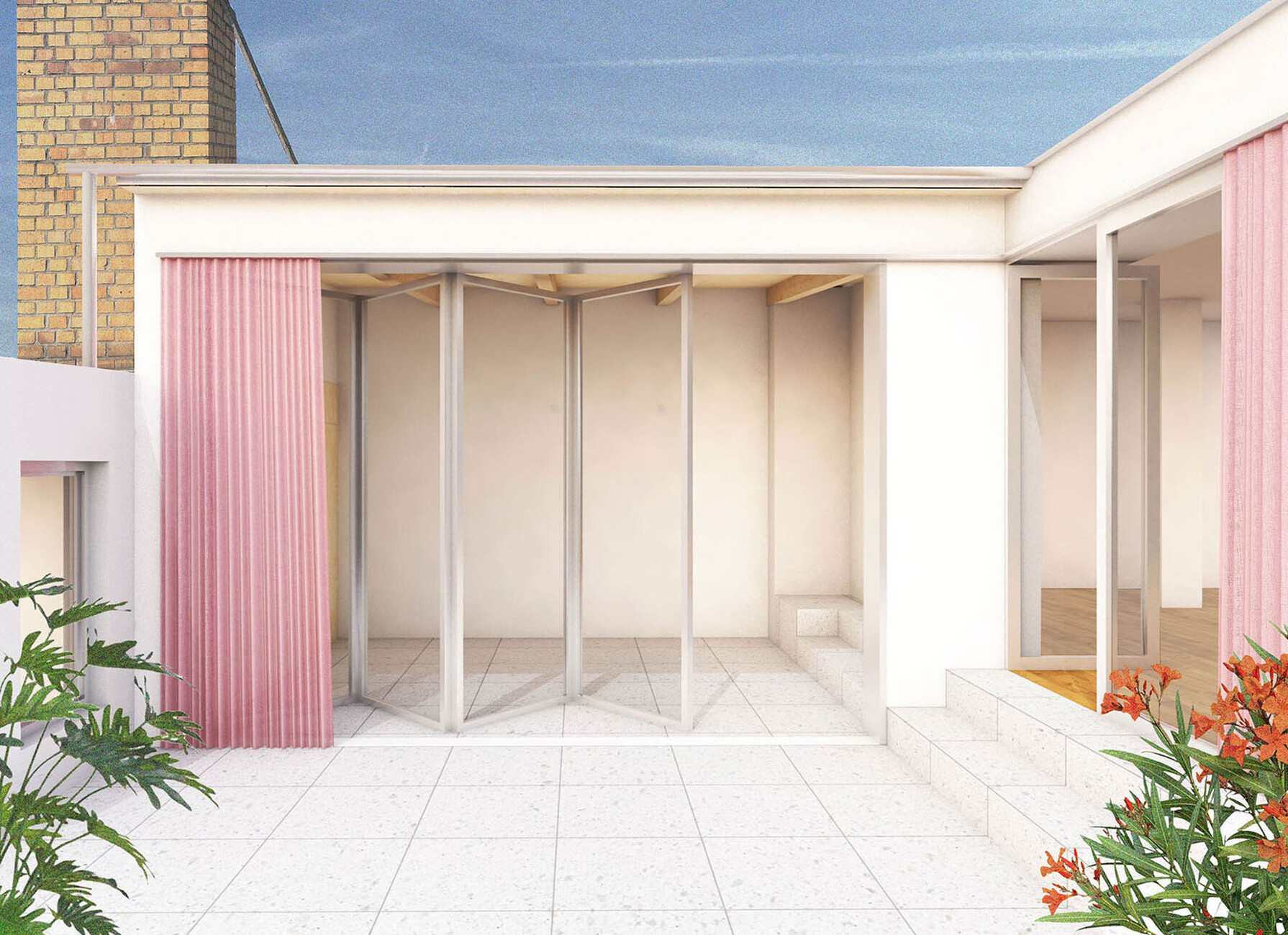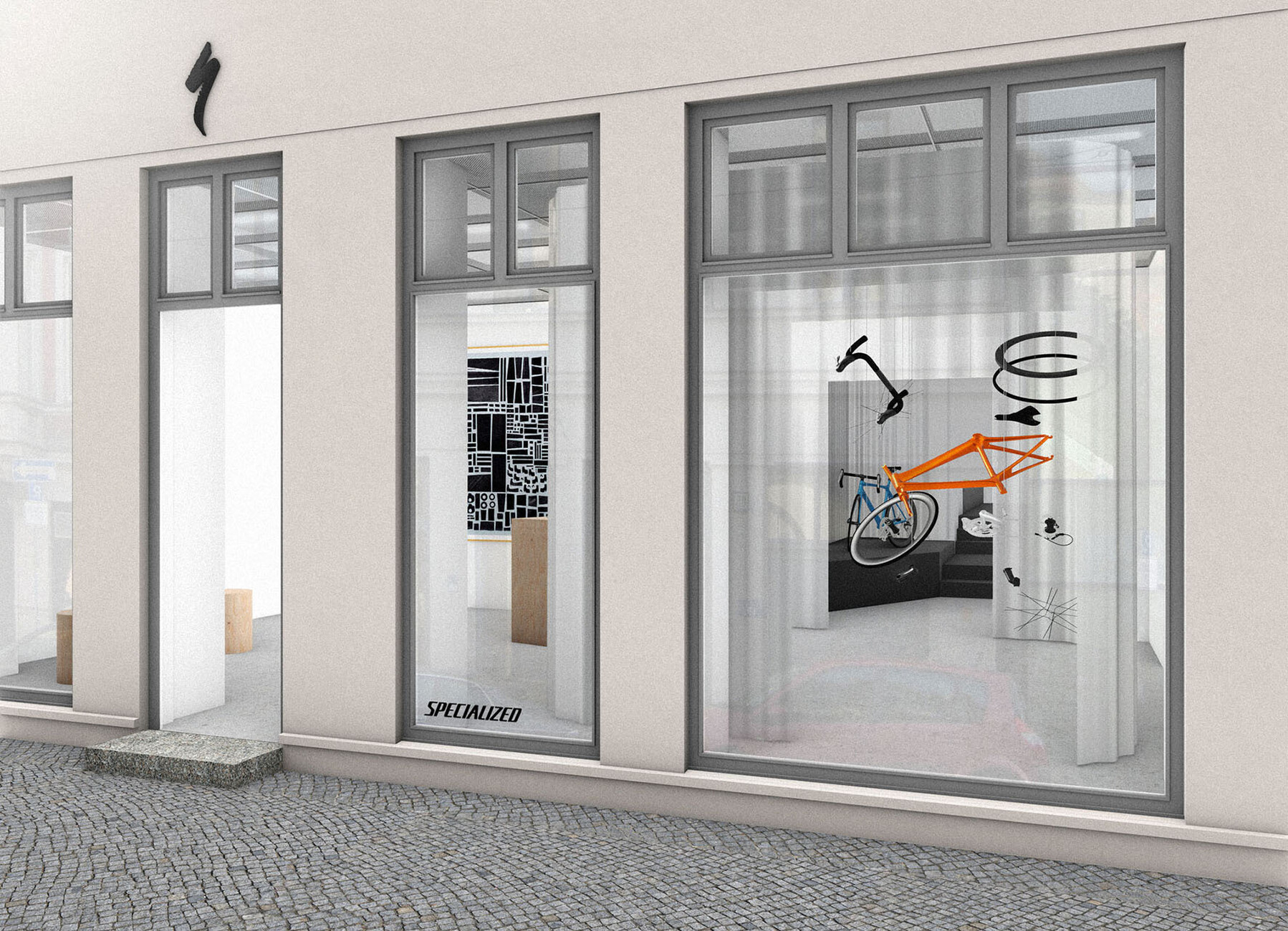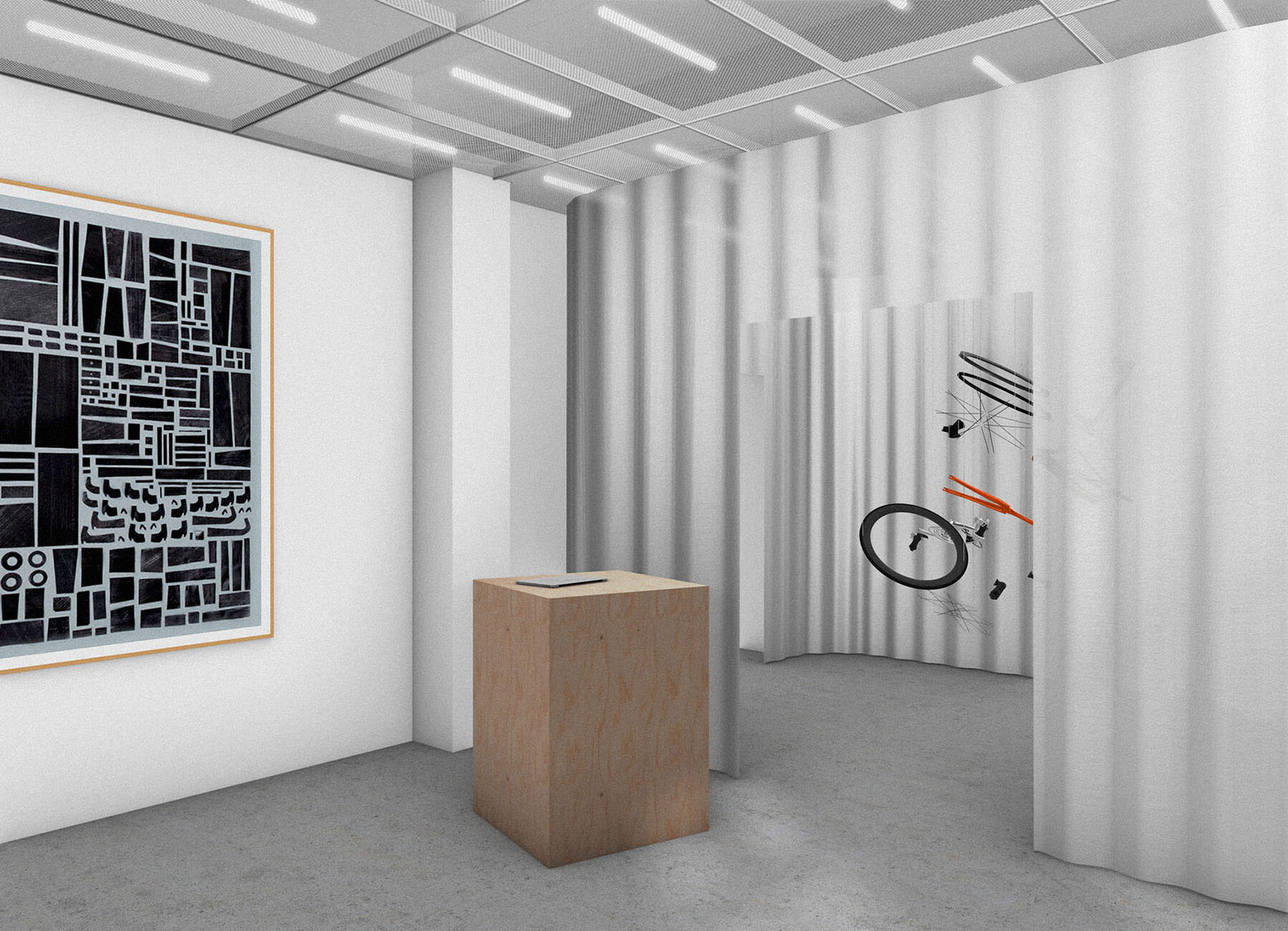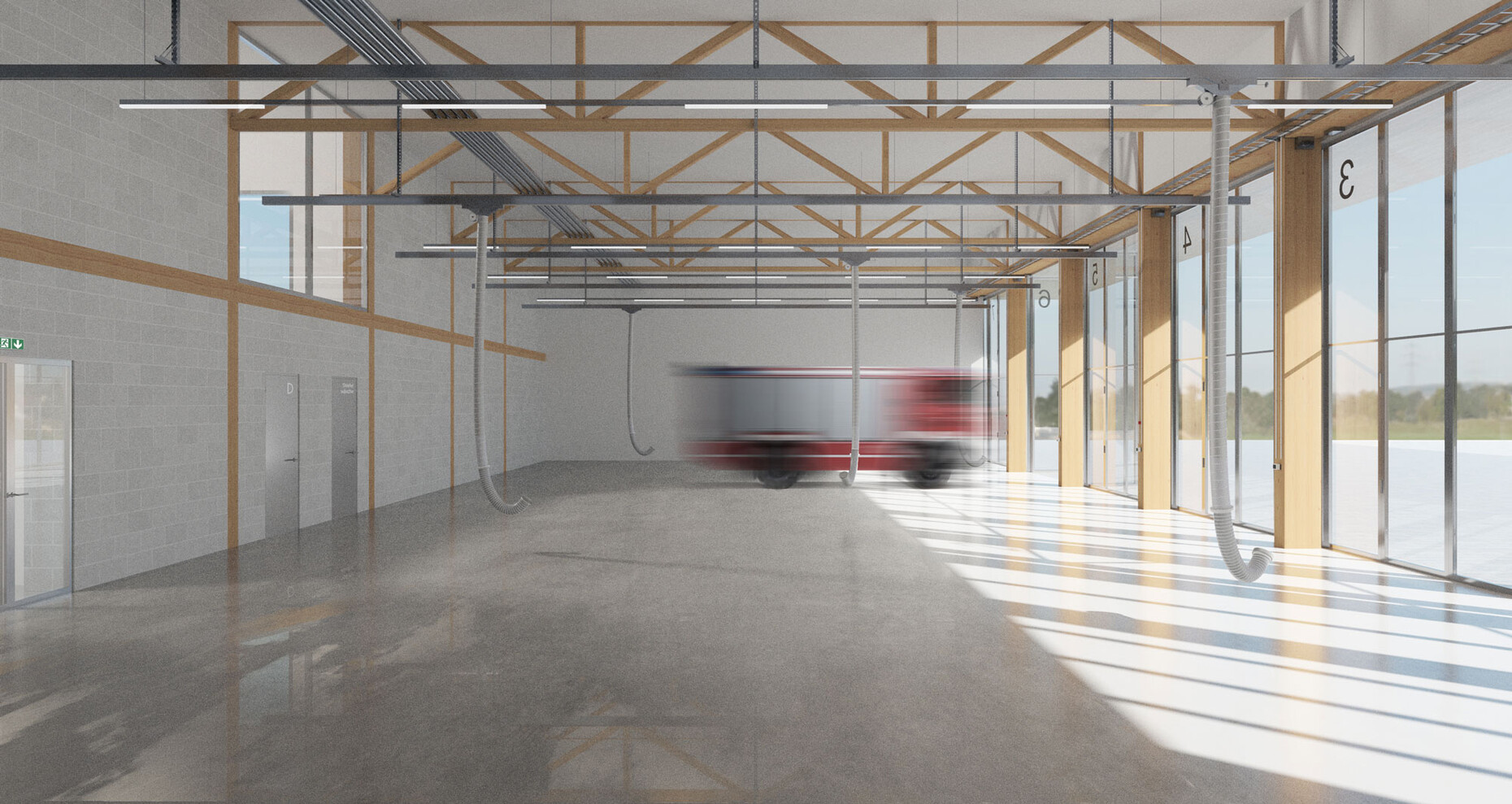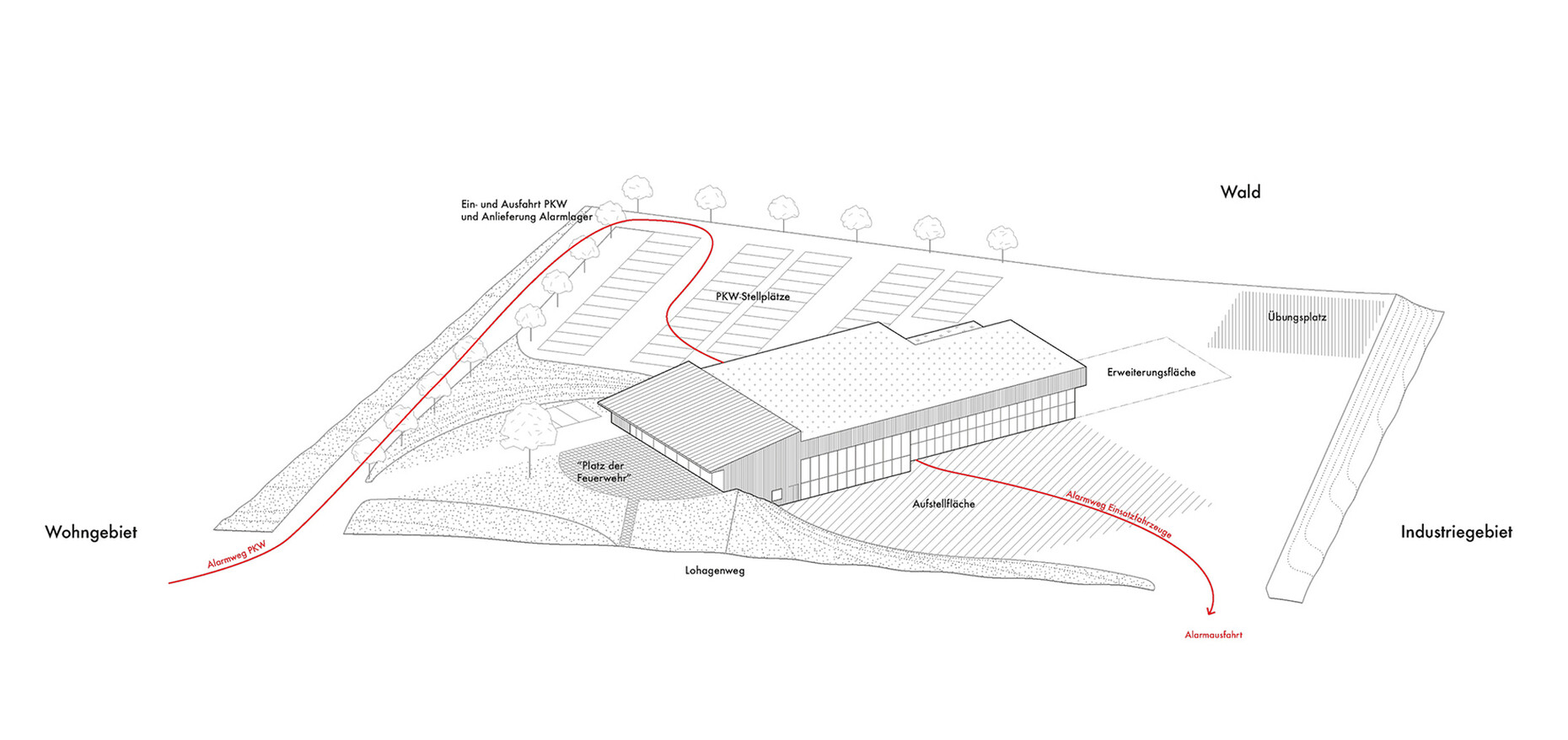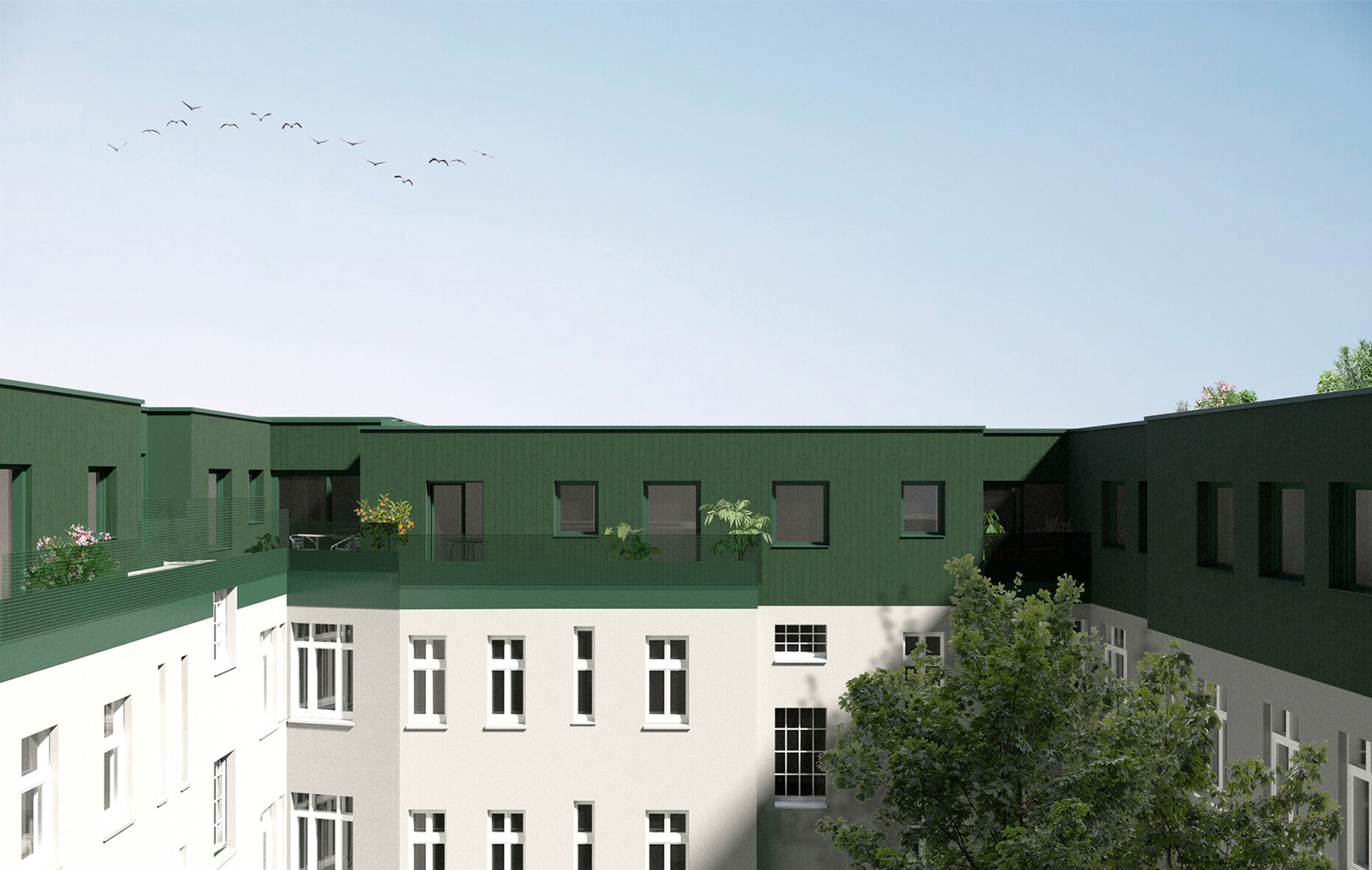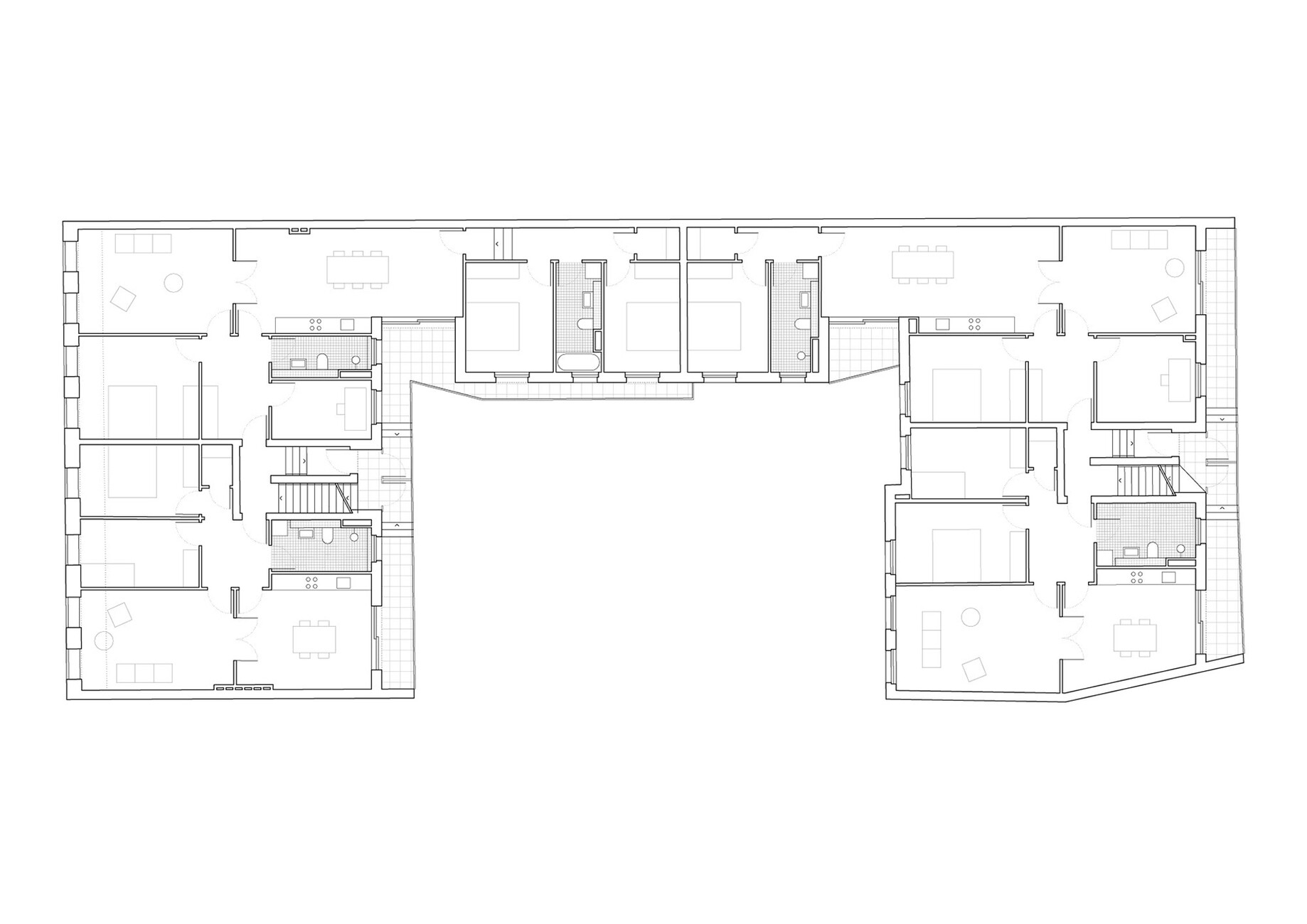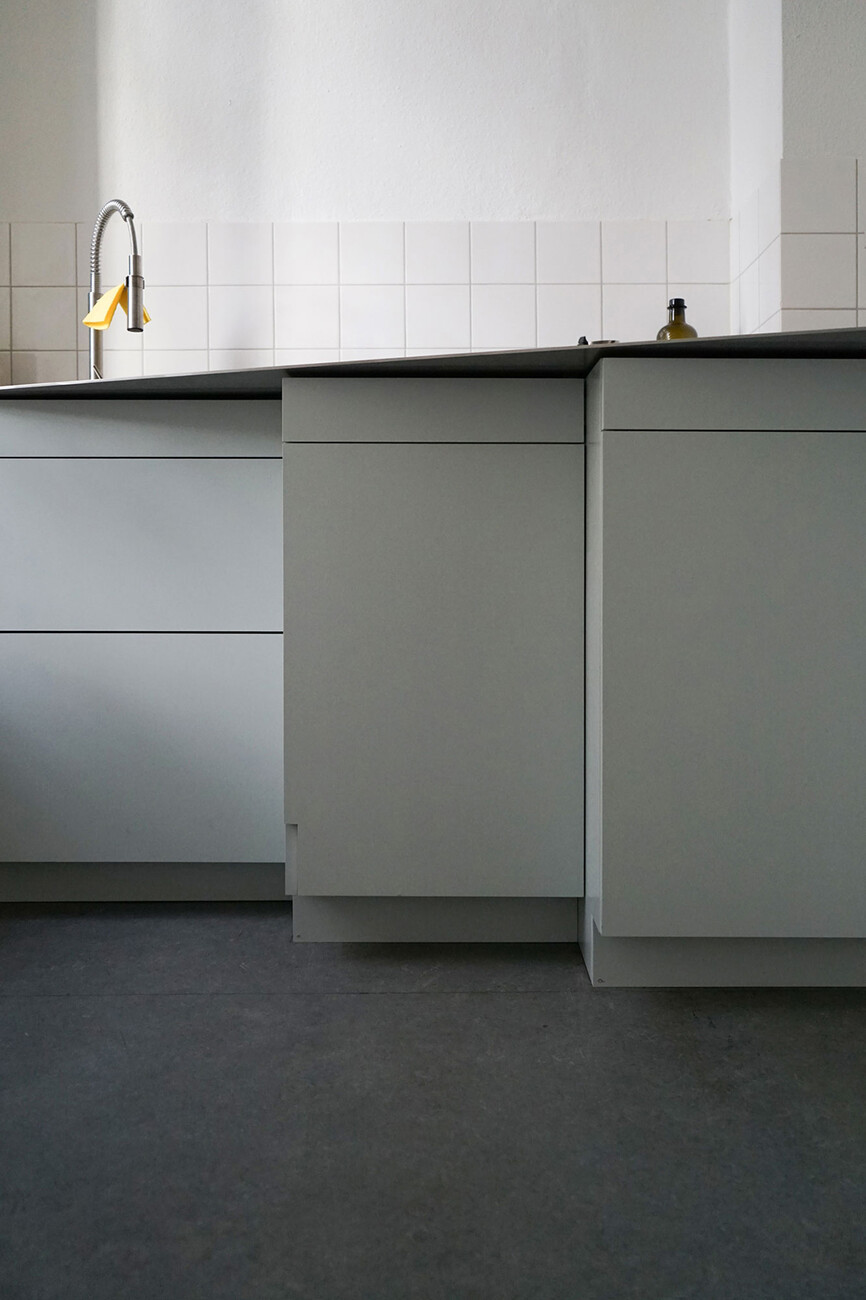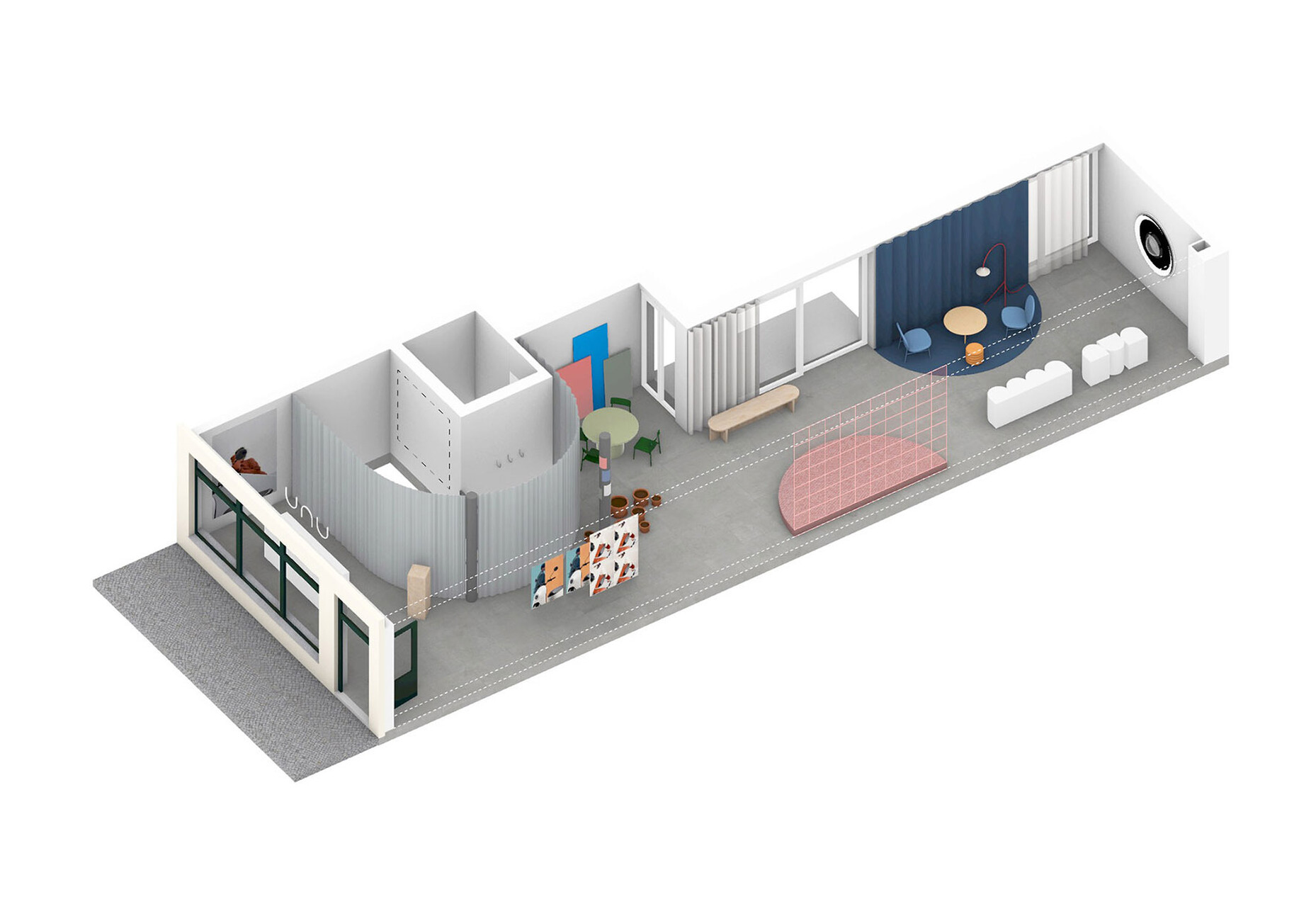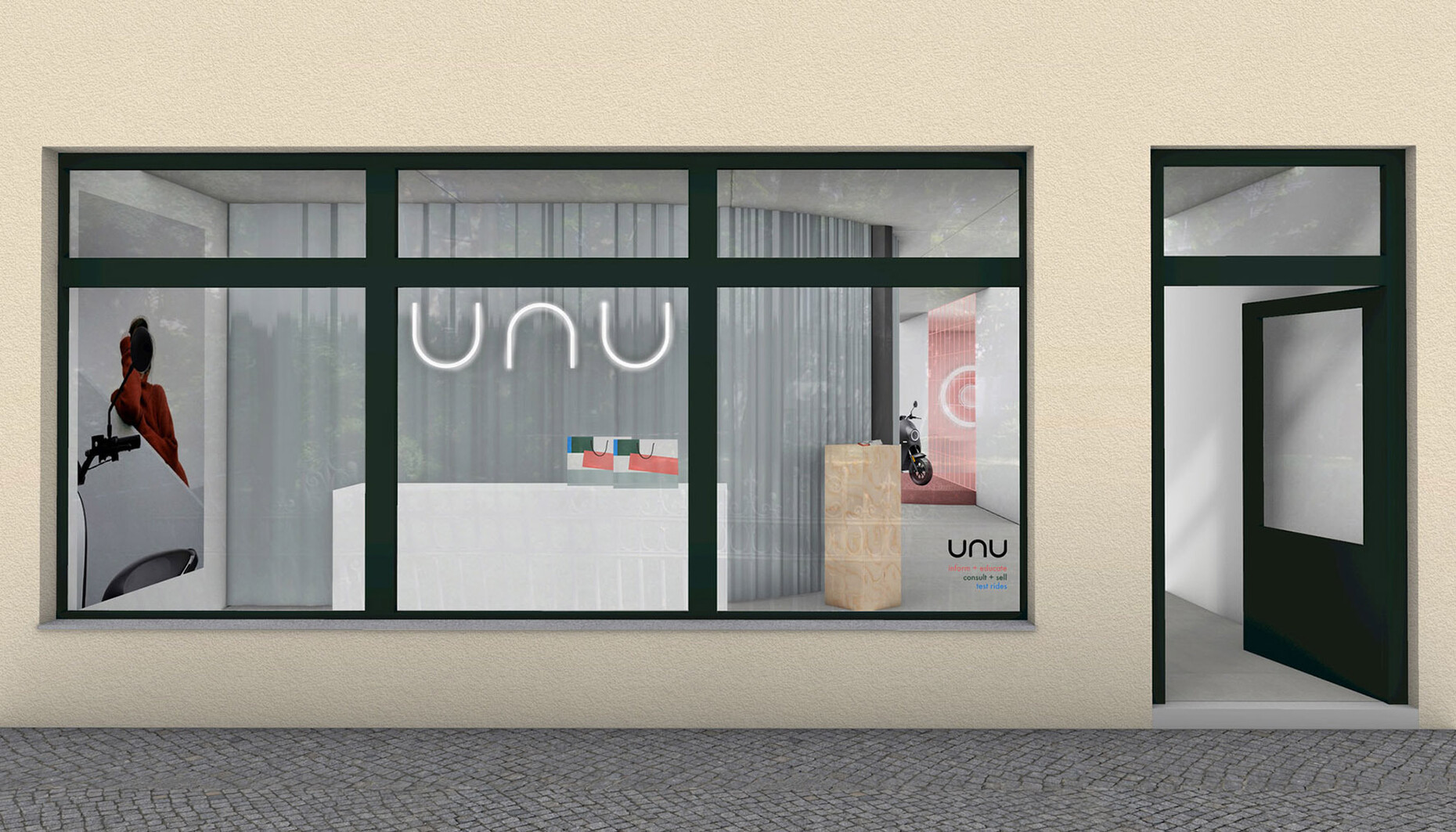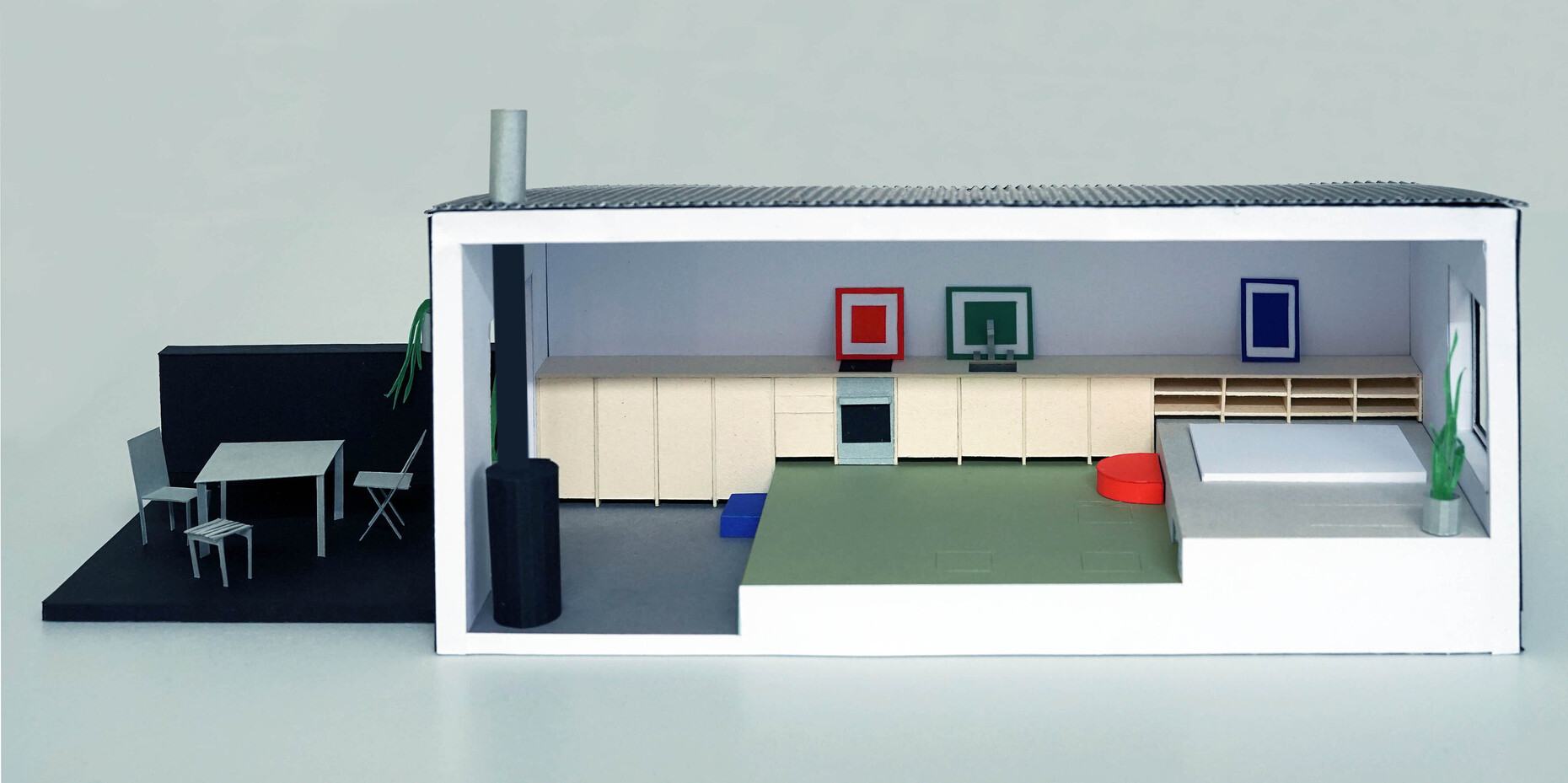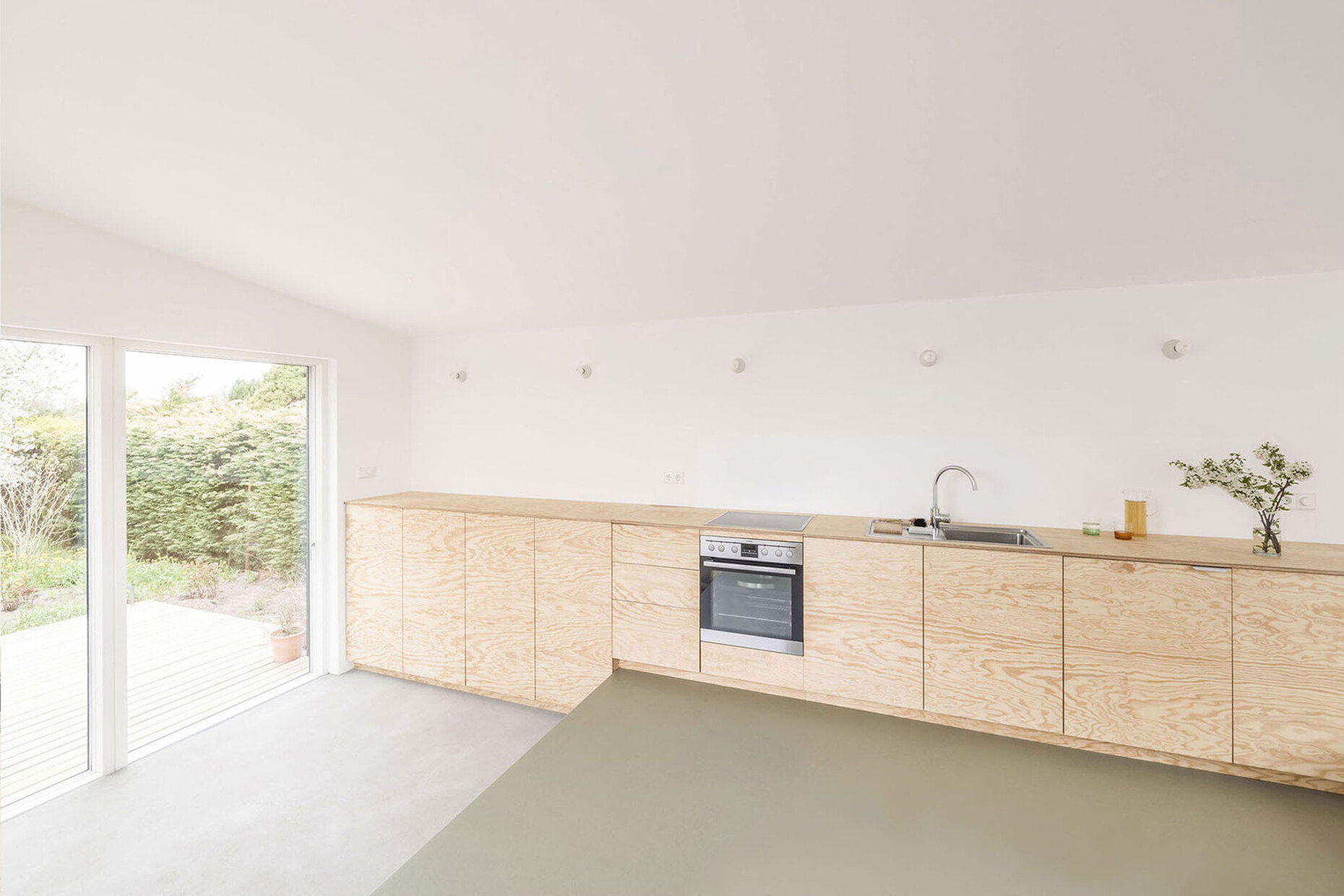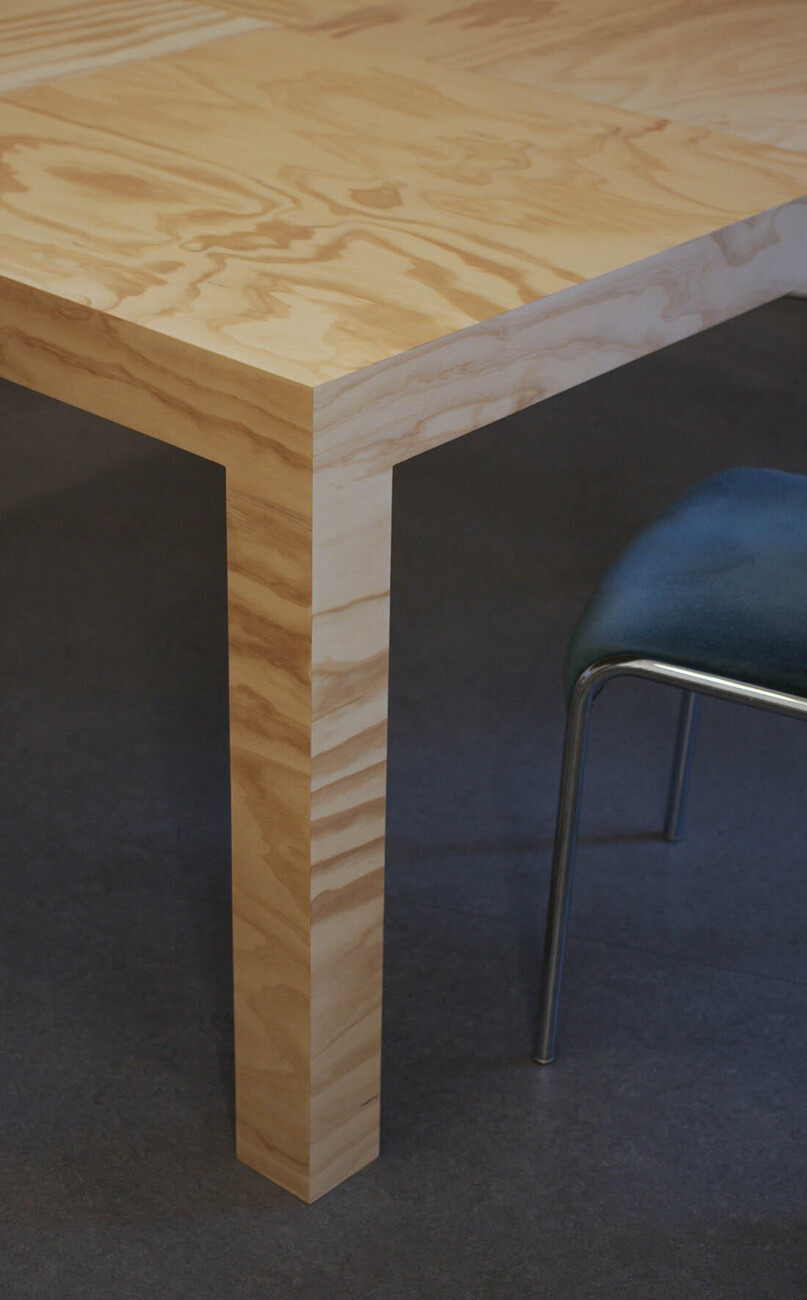Communication is everything
Franziska Horn: What does the name of your office mean? What does ‘into stories’ stand for and what does ‘beyond’ stand for?
Sophia Frommel: Firstly, it stands for architecture, in the classic sense. A large part of our work is concerned with building in existing structures, but new buildings and interior projects are also part of our remit The ‘beyond’ in the subtitle is intended to expand the concept of architecture, which can refer to interiors, furniture and other things.
Romina Falk: The ‘beyond’ indicates that we sometimes go beyond traditional architectural services. Because a lot can go hand in hand with spatial construction, as our concept for an ice cream parlour (BEL) shows. The interior here is abstractly modelled on an ice-cream cone. It was also about corporate identity, marketing and overall holistic thinking. We are not saying that we are better at it than those who have learnt graphic design or something similar, but we like to think beyond architecture, that's what we enjoy.
Sophia Frommel: We don't impose ourselves, but we want to stimulate, look for room to manoeuvre and explore.
In other words, the kind of storytelling that is currently on everyone's lips?
Sophia Frommel: We didn't want a name that was linked to surnames. Also with regard to the consideration of partners leaving or joining the company. What interests us? The best thing is to hear what clients want and when they start talking. When we develop ideas for the people who will move in and then continue to develop the concept together. Our name into stories is not a myth, it should stand for being open.
Romina Falk: What interests us is the process! Not just the finished project, but the special features and the path that leads to it.
There are not too many young female architects who set up their own office. What was your path like?
Sophia Frommel: We met during our studies at the TU Berlin and after a few years of employment – Romina at Kinzo Berlin and Jan Wiese Architekten, Sophia at Johanna Meyer-Grohbruegge – we founded into stories together with Konrad Wolf in 2020. Konrad left the office at the beginning of 2023.
Romina Falk: One of the reasons we founded the company was not to work on just any old project. Instead, we wanted to make a selection and decide everything ourselves from the outset.
Sophia Frommel: Generally speaking, working independently as an architect is not easy. What's more, the working environment is very important to us – not the ingenious ideas, not the formal signature. Today it's more about the formula of not building, because building is becoming more difficult overall. It's not the time. Not even economically.
A look at your day-to-day work: How do you organise the design process in pairs?
Romina Falk: In the early stages, each of us designs on our own to develop more radical, uncompromising concepts, then we work together intensively when it comes to the other phases of the project.
Sophia Frommel: We start by asking about certain points, the specific needs and wishes of the client. Only in the second step do we discuss the idea and work out two or three concepts, nothing more. Some of them are quite radical, but that doesn't always go down well. However, the more radical the original idea, the more sharpened it is, the more basis we have for discussion.
Romina Falk: I'm sometimes surprised by what goes down well.
Sophia Frommel: You often have to explain radical ideas more, but it's worth it because they are relativised later anyway! Reality softens a lot of things. The clearer the idea was, the more it remains.
You design fire stations, loft conversions, holiday homes. Plus kitchens, cupboards and tables - so furniture too?
Sophia Frommel: Yes, we designed the ‘Qua quaderna table’ (QUA) for our studio. Likewise the kitchen furniture (KAZ)...
Romina Falk: ...a radical concept for a kitchen, which we as planners and clients were then able to realise in exactly the same way. The furniture concept is also well illustrated in the holiday home at Mündesee (AMÜ). The commission came from a young couple from the creative sector, we had freedom, which resulted in a cool process. The project was limited by building regulations to around 35 square metres of usable space. A standard floor plan would have been too small, so we worked with steps in the floor that also provide the necessary storage space. The continuous built-in wardrobe ties everything together and brings a sense of calm. Designing an overarching concept is unfortunately only a fraction of the work, but it's really fun. We usually plan right up to the implementation planning stage. We are happy to hand over tendering, construction management and so on, especially for larger projects.
Do you have something like a unique selling point? What do you do differently from other offices?
Romina Falk: We don't work that much differently from other younger offices. For us, creating architecture today means, as already mentioned, intensive enquiry, finding a story and the special features. I think we do that more than others.
Sophia Frommel: Do we have a USP? Not really. We are probably more transparent, also in terms of gendering: it's mostly men who start their own business. The question is: How do you sell your service in advance? The result only comes at the end of the communication process, which is why it is so important. We also communicate a lot with each other: we have a contract, talk about problems right from the start and take a realistic view of things. This ‘how’ is important. Perhaps we are not as self-confident as some men who say up front: Yes, we can do anything! Selling might be different for us, but is that a problem? No, that's fine now.
Romina Falk: We also cancel projects. Likeability is important to us, a good working relationship, getting to know each other personally. As women, we may attach more importance to this than our colleagues.
Do you have or did you have architectural role models?
Romina Falk: You mean star architects, individual names? That didn't pick us up back then during our studies. No, we don't have any for ourselves, but are broadly diversified in terms of references.
Sophia Frommel: When we were studying back then, it was those iconic brutalist buildings that inspired us. But it's no longer the time to build buildings like that. And it has nothing to do with our reality. Our inspiration can come from design and art. We have no pressure to be original. We also learn from others. Not only in terms of architecture, but also in terms of business and social aspects, for example. For us, role models are usually found in other professional fields.
You speak of changed times – what exactly are the signs of the times?
Romina Falk: Planning architecture is an extreme balancing act: what is justifiable – ecologically and socially, affordable and at the same time aesthetically pleasing? This has always been difficult, but now more than ever with the knowledge of the problems of our time.
Sophia Frommel: It would be interesting to work more with other professions and disciplines and involve them, for example architectural theorists and sociologists. But nobody pays for that. We often have to make decisions together in the office, even though they affect society as a whole. It's important for us, especially when we're self-employed, that we enjoy our work. It has to make sense to us. We decided right from the start to do everything together and that's still the case. That's the beauty of it, even if there are personal changes.
Romina Falk: The fact that I had twins in the spring and have been on parental leave since then was a game changer for our office. Being self-employed is an advantage here, but only because we have organised it very well internally. It changes the mode, but it also works really well.
